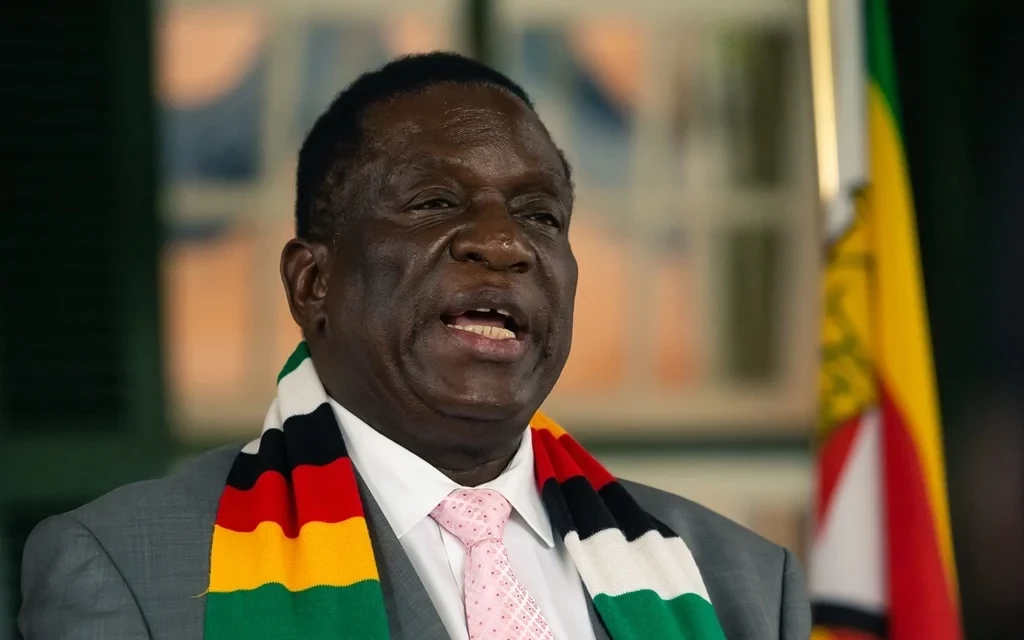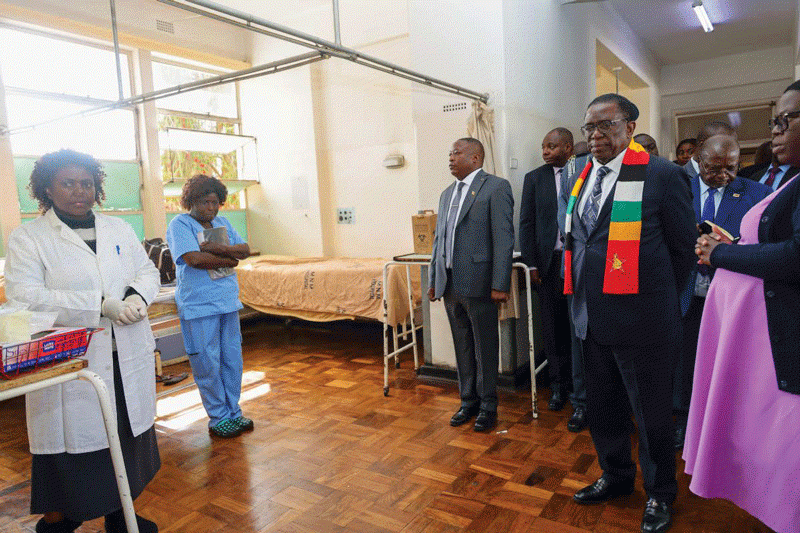
Where were you in 1980? Perhaps you were not yet born, but I must tell you about the exciting moments of the 1980s. There was this pop band, which came from Zambia to Zimbabwe with a big bang. They called themselves the Rusike Brothers. They are still going up to this day, 41 years on.
By Fred Zindi
The Rusikes are a family band made up of five brothers, just like the Jackson Five. They were very popular in the 1980s and 1990s and were famous for their dazzling dancing styles and also for their weird sense of fashion as evidenced by their donning saggy and baggy gunshot jeans with holes in them.
Sometimes they went out of their way to tear the jeans in keeping with the fashion trends of the day. They were one of the best Zimbabwean pop groups in the 1990s and featured at most night clubs as well as dance halls such as Arcadia Community Hall in Harare.
For two decades, the Rusikes dominated the changing face of post-independence popular music in Zimbabwe when everybody danced to the pulse of rhythm from the Rusikes.
The Rusike Brothers, a family band, was formed in 1978 in Lusaka, Zambia. With the influence of their father who was simply known as ABC (short for Abiathar Benjamin Chakuvinga), Tawanda (born on June 9, 1958), Abbie, Phillip, and the twins Kelly and Colin (born on March 17, 1964) became Southern Africa’s answer to the Jackson Five.
Most of their early music was influenced by the Jacksons and their dancing routines were modelled around top Black American pop acts of the 1970s.
The Rusikes had moved from Zimbabwe to Zambia in 1965 during the liberation struggle. Their father was also a musician in a band called The Boogie Woogie Stars in the 1960s. He was also a teacher and journalist in the then Rhodesia. After finding it difficult to continue to write freely in an oppressive state, he chose to move his family to a country which had just attained its independence from Britain.
- Chamisa under fire over US$120K donation
- Mavhunga puts DeMbare into Chibuku quarterfinals
- Pension funds bet on Cabora Bassa oilfields
- Councils defy govt fire tender directive
Keep Reading
The boys were aged between three and 12 at the time. Kelly and Colin, the twins in the family, were only three years old at the time of their move to Zambia.
In 1980 when Zimbabwe attained independence and after performing in front of large audiences in Zambia, the family packed their bags and returned to the newly independent Zimbabwe where they were an instant hit with Saturday Night, their debut single.
With an aggressive push from ABC, who was also their manager, they were given several advertising jobs. These included voice-overs on the Post Office Savings Bank advertisement, Roller Meal videos, Merlin, newspaper and video advertisements. The most popular jingle they ever did was Ngwerewere Sadza, which advertised Ngwerewere mealie-meal.
Two singles were released between 1981 and 1985 and despite this seemingly lack of progress in the recording business, the Rusikes made a lot of business in the top night clubs of Harare and Bulawayo.
They also made a great impact at live shows. In 1982, they were the supporting act for ASWAD, a reggae group from England, when they toured Zimbabwe. In 1988 their debut album Rhythm of My Heart was released. This included their hit single, a version of Simon and Garfunkel’s Cecilia which featured on Radio 3’s (now Power FM) hitpick for 12 weeks.
In 1990 the Rusikes became the main support act for Randy Crawford’s show in Harare. Work on a second album began at the same time, but a few snags at the studio plus the untimely death of their father, ABC, forced the Rusikes to abandon the work on the album. Instead a re-mix version of Saturday Night was released.
In 1992, they toured England, but due to poor planning on the part of their promoters, their trip did not make a big impact overseas. The Rusikes became Zimbabwe’s top family group, which stayed together for a long time as performers. It was also the Rusikes who started off artistes such as the now internationally acclaimed Rozalla Miller whose hit single, Everybody is Free to Feel Good, wowed the world a few years ago. In 1995 they recorded an album that included a Paul Simon classic and hit song entitled If You Really Need Me.
By 2000 Colin and Kelly, the twins, had both left the group. Colin went to the United Kingdom, while Kelly formed his own group, The Jazz Invitation, with female singer Prudence Katomeni, Bernie Bismarck on keyboards, Simba Dembedza on drums, Matthew on guitar, Vee Mukarati on saxophone and also Patience Musa on vocals.
Kelly, like Michael Jackson, who decided to split from his brothers after the Victory Tour in 1984, also decided to go solo when he formed Jazz Invitation which started to play a different genre of music from the Rusikes.
The concept, Jazz Invitation was originated by drummer and musical entrepreneur from Mutare, Sam Mataure, who initially “invited” different musicians to play at jazz festivals around the country. The novel idea caught on like wild fire as it brought together musicians of varied styles and tastes.
The band’s line-up has changed several times over the years with Kelly (bassist/vocals) remaining the only constant. It started with Victor Duarte on the drums and eventually incorporated Mataure, Richie Lopes, Kudzie and Louis Mhlanga. When the Frontline Kids split up, Kelly took Filbert Marova as Jazz Invitation’s keyboards player.
I asked Kelly whether he no longer belonged to the Rusike Brothers and why he found it necessary to form a band without his brothers. Here is what he had to say:
“I will always be a part of the Rusike Brothers, because, and most important, we are family. I owe a lot of my musical journey to my brothers. Even though Jazz Invitation is my pride and passion, I still do play with them from time to time and will continue to do so when time allows. We might have our differences but the important thing is that we are family.” Indeed, Kelly continues to move the Rusike name forward.
In June 2014 some music promoter in Slovakia visited the social media platform, YouTube, and saw The Rusike Brothers doing their thing. He likened them to the Jackson Five and was amazed to know that such a group existed in Africa. He was impressed. He called Zimbabwe to find out how he could get in touch with the group.
In no time at all, he had invited the Rusikes to do a two-week tour in Slovakia where the three brothers Tawanda, Phillip and Abbie teamed up with their prodigal brother, Kelly of Jazz Invitation, Jose on drums, Kurt Rusike on vocals and Isheunopa Jera on keyboards to showcase to the rest of the Czech Republic and Slovakia what the promoter saw and liked. Missing from the original team was Colin, who went to the UK some 20 years ago and has not been heard of since.
Twenty-five years ago, I remember writing, and I quote: “The Rusike Brothers will still be doing what they are doing now when they are well into their 50s.” I am not a prophet, but I am told, that prediction came true in the Czech Republic and Slovakia. As the classics rolled out, their once-futuristic chrome sheen still untarnished, they treated the Slovaks to their first single, Saturday Night, followed by copyright songs, which were in the pop charts of the 1980s such norm as Simon and Garfunkel’s Cecilia, The Real Thing’s You To Me Are Everything and Michael Jackson’s Shake Your Body To The Ground. Each song was punctuated with some wicked dance routines and soon beads of perspiration began to pour down their cheeks.
It seems like the Rusikes as a pop group will never die. They have come a long way and the journey still continues.
Kelly, in particular, recalls the moments he and his twin brother Colin started school at the Dominican Convent in Ndola where he learned to speak Bemba just like any Zambian.
From the albums his father bought, they used to listen to music from Sonny Sondo who sang in Bemba.
Now Kelly has mastered the language to the extent that on April 28, 2015, he sang two songs when he shared the stage with the former Zambian president, the late Kenneth Kaunda, one titled Tiende Pamodzi and another called Mupende Bwino to which they both received a standing ovation from the audience present.
For the past two years, Kelly has been based in Spain doing his thing. The Rusikes’ journey continues.
- Feedback: [email protected]











